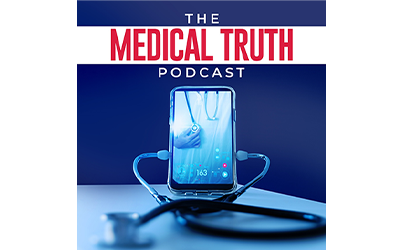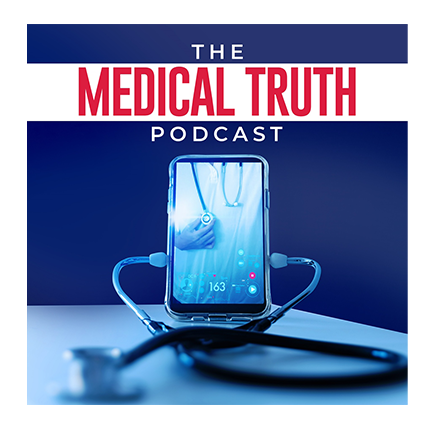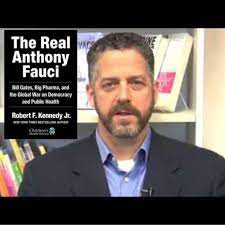On a recent episode of The Medical Truth Podcast, host James Egidio welcomed Tony Lyons, the founder and publisher of Skyhorse Publishing, to discuss the current state of the publishing industry and the challenges facing authors and publishers alike. With over 15 years of experience in the industry, Lyons brought a wealth of knowledge and insight into the conversation, sharing his perspectives on the future of the book market and the role of independent publishing houses in a rapidly evolving landscape. Read on for a recap of their discussion and key takeaways for aspiring authors and industry professionals.
In recent times, the world has witnessed an unprecedented level of censorship, particularly with the COVID-19 pandemic. The internet and social media, which were initially hailed as a platform for free speech and exchange of ideas, have now become increasingly controlled by big tech companies, with governments exerting pressure on these companies to censor opposing views.
Tony Lyons is a strong advocate for the freedom to access information and ideas from all angles. He believes that it is essential to have access to all perspectives, especially when it comes to healthcare, to make informed decisions. According to Lyons, censorship has become a weapon that is used to discredit opinions that question the government’s narrative. For instance, most of the books that SkyHorse Publishing has published on COVID-19 have undergone de-platforming and censorship on social media platforms. Lyons cites the negative reviews that Bobby Kennedy’s book Thimerisol, Let the Science Speak received, even before its publication, as an example of the weaponization of words like misinformation and conspiracy theory to discredit genuine differences of opinion. It is crucial to note that Kennedy’s book is an essential analysis of peer-reviewed studies with over 2,194 citations. Despite this, the book faced criticism and censorship, which is a worrying trend in a democracy.
In addition, Lyons believes that the powerful propaganda campaign and censorship tools used during the COVID-19 pandemic are a worrying trend that needs to be addressed. He argues that people who do not look at the science and do not listen to strong arguments from scientists like Dr. Judy Mikovitz, Dr. Korey, Dr. Malone, and Dr. McCullough, have been subjected to the most powerful propaganda campaign in the history of mankind. This propaganda campaign has led to a lack of diversity in ideas and a manufactured consensus. To prevent a similar situation from happening in the future, Lyons calls for solutions to encourage debate and prevent censorship in a democracy.
Lyons also emphasizes the importance of finding solutions and moving forward from the politicization of the COVID-19 pandemic. He believes that change has to start from the top and that the grassroots movement of hundreds of thousands of people is an essential driving force in bringing real change. Lyons believes that Robert F. Kennedy Jr. could be a potential presidential candidate who could make a difference by changing the Centers for Disease Control and Prevention (CDC), the Food and Drug Administration (FDA), and the National Institute of Allergy and Infectious Diseases (NIAID). He also mentioned that doctors such as Dr. Pierre Korey, Dr. Robert Malone, Dr. Peter McCullough, and Dr. Joe Ladapo could take important positions in the government if Kennedy became president.
Lyons is also critical of the negative impact of AI on publishing, particularly when it comes to copyright infringement. He argues that AI can be a shortcut for young people, allowing them to get their school papers written quickly without having to remember things themselves. This is not good for mankind, and there needs to be monitoring and counterbalances in place to ensure that scientific developments and government agencies are not controlled by the companies they are supposed to regulate. Lyons also suggests the need for an organization that has real power to act as a watchdog and ensure that government agencies do their job.
In conclusion, the conversation between Tony Lyons and James Egidio provides a thought-provoking look at the role of free speech and censorship in our society, particularly in the context of the COVID-19 pandemic. While there are many challenges and obstacles to preserving free speech in a democracy, it is clear that the ability to engage in open and honest dialogue is essential to our ability to make informed decisions about our health and wellbeing, as well as to our ability to hold government agencies and corporations accountable for their actions. By supporting independent publishers, promoting open dialogue, and being vigilant in our efforts to protect free speech, we can help to ensure that our society remains open, democratic, and free.







